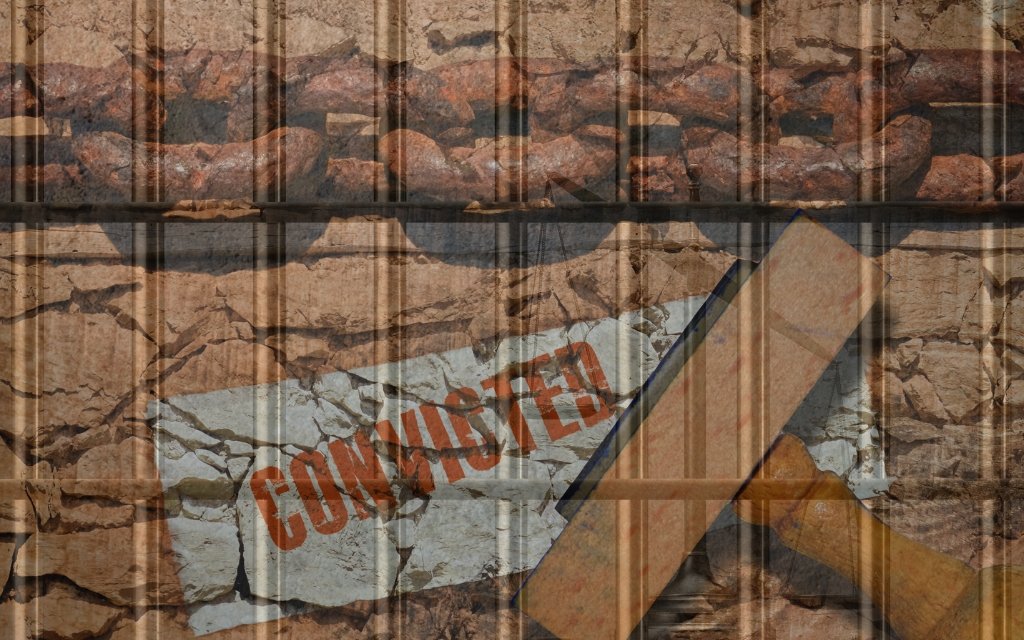Discover the legal consequences and penalties for swatting, including prison sentences, fines, and examples of what is the punishment for swatting.
Swatting: The term itself sounds like something one would do to a fly, right? But in actuality, it is an issue very serious and dangerous. Picture it this way: You are sitting at home, minding your own business, and then out of nowhere, your house gets swarmed by a SWAT team.
The doors get kicked down, the officers storm in, and you’re left confused and terrified, wondering what on earth is going on. That nightmare scenario is what happens when someone is a victim of “swatting.” And it’s no joke. But what happens to the people responsible for these terrifying hoaxes? What is the punishment for swatting?
Now, let’s go deep into this rabbit hole: the legal consequences of swatting, how the law treats these cases, and why swatting is more than just a prank-it’s a crime that could destroy someone’s life, including the perpetrator’s.
Table of Contents
What is Swatting?
First, before talking about punishment, let’s define what swatting even is. Swatting is a false report to law enforcement that a violent crime is in progress at a particular address. How does this work? The idea behind this is to entice police into a heavy response through the utilization of a SWAT team- hence the name.
This is not some kind of harmless prank. Swatting can lead to real damage: property destruction, physical injury, and in some tragic cases, even death.
I remember the news story of a man in Kansas by the name of Andrew Finch, who was accidentally killed by police after they sent a SWAT team into his home on false information. Who called in that call for that swatting incident? They’re looking at some serious time behind bars. Swatting isn’t a game; the consequences are serious.
Legal consequences of Swatting
You may ask yourself, “Okay, but what are the legal consequences of swatting?” They vary depending on where you live, but in most places, swatting is treated as a serious criminal offense.
In the United States, swatting can lead to a range of charges, including:
Let’s break this further into details.
What Are the Penalties for Swatting in the US?

In the United States, penalties for swatting vary according to state laws and also according to the specific circumstances of the case. However, by default, the punishment entails:
For instance, under federal law, if swatting results in an injury or death, prison time can go up to 20 years. Even without the one being hurt, prison time and fines that length could still be imposed onto the perpetrator.
How Long Is the Prison Sentence for Swatting?
One of the most common questions is, “How long is the prison sentence for swatting?” That truly depends on the severity of the incident. If no one was hurt, the sentence could be as few as a couple of years. But if someone is injured or killed, the person responsible for the swatting could be seeing decades in prison-or even life.
In fact, the man who caused the swatting that led to Andrew Finch’s death in Kansas received a sentence of 20 years in federal prison. That is a long time to pay for something some would have thought was a “prank”.
Is Swatting illegal, and what are the fines?
On that note, yes, swatting is illegal, and taken as a serious crime in just about every jurisdiction. However, fines associated with swatting can also be staggering. Apart from criminal penalties, the perpetrator may be ordered upon restitution. Restitution is basically a means of refunding the state or local government the costs of the SWAT response.
For example, if an incident of swatting requires the deployment of a SWAT team, then the costs can easily shoot up into the tens of thousands. And that is just in terms of emergency response, to say nothing of potential property damage or personal injuries that may very well drive the fine much higher.
To add insult to injury, most swatting charges also carry civil penalties with them. Meaning the victims can also sue the perpetrator in civil court for such things as emotional distress, property damages, or even medical bills.
I do recall one such case, where a certain teenager was found guilty of swatting. Besides being sentenced to prison, he was ordered to pay over $100,000 in restitution. That’s a debt that could follow him for the rest of his life.
Examples of People Convicted of Swatting

If you are not convinced that Swatting is a serious crime, let’s take a look at some real-life swatting cases of convicted people.
These cases make perfectly clear that swatting is not some sort of harmless prank, but rather a serious crime with serious consequences.
Federal Law on Swatting
For instance, SWATTING can be prosecuted under federal law as a form of domestic terrorism when specific parameters are met. That is to say, such incidents may involve the FBI, among other federal agencies, especially when the swatting incident crosses state lines or places, or involves a federal facility.
Federal charges might also mean longer prison sentences and larger fines than at the state level. The Federal Bureau of Investigation views Swatting as a form of criminal harassment, and the FBI takes such matters very seriously.
The Cybersecurity and Infrastructure Security Agency warns that swatting is increasingly being tagged as a cybercrime when calls are done via the internet or in instances where hacking of emergency communication systems is involved.
State Laws for Swatting Punishment
While federal law deals with the most serious case of swatting, states have endowed laws themselves against the crime. While some states have direct statutes for swatting, others prosecute it under already existing statutes for making a false report or creating a public disturbance.
For example:
Specific laws depend on the state you are in, so it would be better to ask about local government or an attorney dealing with criminal law.
Why You Should Care About Swatting
You might say to yourself, “This doesn’t affect me. I’m not going to swat anyone, so why should I care?” Well, here it is: swatting can happen to anyone. You don’t have to be a celebrity or a high-profile target to be a victim. Swatting incidents have happened to regular people sometimes as a result of online arguments and even to people who have had no connection with the perpetrator whatsoever.
Swatting likewise is on the rise in the age of the internet, where people are becoming so much bolder to commit crimes while anonymous that they might otherwise not contemplate.
I have seen it all too frequently these days in digital space, being a person who spends steady amounts online. Friends of mine experienced doxxing, or the leaking of their personal info, although none of them got swatted yet the fear was definitely there. It is just so surreal to think about someone weaponizing law enforcement against you from behind a computer screen.
How does one prevent Swatting?

It is hard to prevent an attack of swatting, but there are some attempts by law enforcement agencies and technology companies to mitigate the risks.
FAQs:
1. What is swatting, and why can it be considered a serious crime?
Swatting is a form of technology-based harassment in which subjects call police and report a violent crime in progress at the victim’s address for the purpose of provoking a police response that generally will involve sending a SWAT team. It is treated as a serious crime because it has the potential to occasion property harm, physical harm, and even deaths, as emergency responders may act based on the just provided false information.
2. What are the potential legal consequences a person convicted of swatting could face under U.S. law?
Penalties for swatting vary by state but often include felony charges. Possible imprisonment could range from a few years to life imprisonment if someone gets injured or worse due to the swatting incident. Perpetrators may face hefty fines, restitution for the costs related to emergency response, and civil liability for any damages caused to the victims.
3. What is the treatment of incidents of swatting under federal law?
Swatting, under federal law, depending on specifics including whether interstate communication or federal agencies were involved, can be prosecuted as a form of domestic terrorism. The scheme would entail more severe penalties in the case of federal charges, resulting in longer prison sentences and larger fines than what would have been given by the state. To the FBI, swatting is considered a serious crime, and as such, they investigate it.
4. How do people protect themselves from becoming victims of swatting?
While it is difficult to completely avoid swatting, there are ways to minimize the risk: one can enhance the online privacy setting, not share any personal information in public, and be careful with whom they interact online. Police also continue working on enhancing caller identification systems and cooperation with technology companies in identifying possible threats connected with swatting.
Conclusion
So, what is the punishment for ‘swatting’? As you have seen, it is severe. Swatting is not a prank; it is a crime that can destroy lives-it can destroy the life of victims as well as of the perpetrators. From felony charges and fines to life imprisonment, one will face serious and long-lasting consequences.
Swatting shows just how perilous and feckless pranks can be, especially now that it is the digital era. The take-home point of anything from this article is: think before you act, with particular regard to the act of calling the police. Real lives are in your hands, and no prank deserves what would be involved.
Additional Resources
For more information on the legal aspects of swatting and how to protect yourself, check out these resources:
Disclaimer
This article is intended for informational purposes only and should not be considered legal advice. The content discusses the serious nature of swatting and its legal consequences but does not substitute for professional guidance. Laws vary by jurisdiction, and individuals facing legal issues should consult a qualified attorney for advice tailored to their specific situation. The author is not a legal professional and does not guarantee the accuracy or completeness of the information provided.


